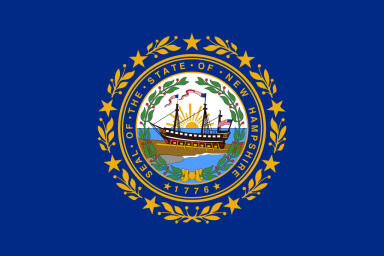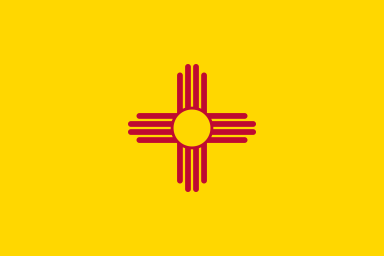North Dakota Workers’ Compensation Laws

North Dakota has the highest rate when it comes to severe workplace injuries, according to a report by the Insurance Journal on May 24, 2021. The state has ranked first in the U.S. for work-related accidents, with nearly 135 severe cases for every 100,000 workers since 2015, based on the severe injury report data given by OSHA. These statistics created a need to implement workers’ comp laws in the state.
The North Dakota Safety Council reported a rough total of 83,092 workers’ compensation claims from 2017 to 2021. The most common cases that the council has seen include broken bones, burns, amputations, slips and falls, and traumatic injuries while on the job.
With these statistics, North Dakota businesses are now required by law to purchase workers’ compensation insurance before hiring employees. They are also required to post proof of insurance at their workplace, which should include the Certificate of Premium Payment. Failure to post this proof will result in a $250 fine. Additionally, it is against the law for employers to deduct money from employees' wages to cover their insurance.
There are a variety of complex terms and regulations associated with North Dakota workers’ comp laws. As such, not only should workers and employers be made aware of these procedures, but also insurance and HR professionals, medical providers, the employee’s beneficiaries, and the general public. The following sections will help you stay informed of these regulations, ensuring that the rights of each party are protected and fostering a safe and fair working environment in North Dakota.
North Dakota Workers’ Compensation Insurance Requirements
In North Dakota, businesses that have one or more employees are required to obtain workers’ compensation insurance as long as this employee is not exempt from mandatory coverage. These exemptions may apply if the worker is an independent or general contractor or if the only employee of the company is you, the sole owner. Although it is not required for business owners to carry insurance, purchasing one can still come in handy, especially if your line of work can result in substantial medical expenses.
As a monopolistic state, North Dakota allows only Workforce Safety & Insurance to underwrite workers’ compensation insurance since private insurers are not authorized to do so. WSI is an exclusive company-funded, no-fault insurance system that covers matters like workplace accidents, death, or illnesses, as well as ongoing care, lost wages, and death benefits.
Upon the purchase of North Dakota workers’ compensation insurance, the employer’s liability coverage is usually not added to the policy since it is bought through a state fund. In order for employers to protect themselves from employee lawsuits, they need to purchase this plan as a stop-gap liability coverage, which is an endorsement typically bought from a private insurer and added to the employer’s general liability insurance.
Although it is mentioned that North Dakota workers’ compensation policies must be bought through a state fund, this stop-gap coverage is exempt from that rule due to it being purchased as an endorsement and not a full insurance plan.
If a business fails to present proof of workers’ compensation insurance, it can face numerous penalties, such as
A $10,000 one-time penalty and a $100 daily fee for continued noncompliance.
Lawsuits from employees seeking damages for their work-related injuries or illnesses.
Liability to pay the premium for its employees during the time they were not insured.
A cease-and-desist order issued by the state to provide coverage for its workers.
North Dakota Workers’ Compensation Benefits
North Dakota’s workers’ comp insurance is designed to help employees obtain compensation for the illnesses or injuries that they suffered in the workplace. This policy provides them coverage for their medical benefits, lost wages, and personal expense reimbursement, as well as permanent partial impairment and death benefits.
To understand these coverages better, refer to the table below.
How to File a Workers’ Compensation Claim in North Dakota
As the state with the most reported severe workplace injury cases, there is no doubt that both employers and employees are already familiar with the process of filing a workers’ compensation claim. Listed in the sections below are the specific guidelines for reporting an injury and submitting a claim in North Dakota.
When Is the Deadline for Workers’ Compensation Claims in North Dakota?
North Dakota workers’ compensation claims must be made within one year from the date that the injury occurred or was discovered or two years after a worker’s death. But even with this given timeline, you can immediately report your injury to your employer as soon as you discover it. By doing so, you can inform your employer of potential hazards in your workplace, which can prevent your coworkers from experiencing the same accident that you did.
Step-By-Step Guide on Filing a Workers’ Compensation Claim in North Dakota
Since 1994, North Dakota workers’ compensation law has developed the Risk Management Program, available to all employers regardless of their premium. The most common program that employers in North Dakota avail of is the Designated Medical Provider, which aids in the consistency of providing treatment for injured employees.
At the beginning of their employment or prior to any work-related injuries, employees in North Dakota must fill out and submit a DMP form to the company’s Human Resources and Payroll Services department. This form must include a list of all the medical providers that the employee wishes to use in the event that they sustain an injury at work.
Work-related injuries are not uncommon, but prior to filing a North Dakota workers’ compensation claim, the employee has a number of responsibilities that they need to fulfill. First, they need to determine the seriousness of the injury or illness that they suffered and if they need medical attention. Second, in the event that the injury happens while they are working or traveling outside the state or country for work-related matters, they need to notify their supervisor immediately.
Similar to its employees, the employer also has responsibilities when it comes to work-related injuries. They must develop a policy related to injury reporting and make sure that all injuries and accidents are reported. This policy must include details of who, when, and how to report, as well as what to do when an injury occurs. In simple words, they need to make it easy for their employees to report a work-related injury.
Employers in North Dakota are also prohibited by the law from denying their workers the right to file a claim. If an employer is preventing their employees from filing a workers’ compensation claim, the workers can report this conduct to the North Dakota Department of Labor.
Now that we have the specifics out of the way let’s move on to the process of reporting your claim.way,
1. Report the Injury
Based on the statement above, your employers must’ve already laid out your options for reporting an injury that occurred at work. If your injury is not serious but you still need medical care, you need to report it to your employer. If the injury is serious and you need medical attention, you should first get treatment as soon as possible before notifying your employer.
2. Complete and Submit the First Report of Injury Form
You can file a claim with WSI within 24 hours of the work-related injury that occurred. When filing a North Dakota workers’ compensation insurance claim, WSI will encourage you to collaborate with your employer when doing so. To start a claim, you need to submit a First Report of Injury form to WSI. You can complete this form online or submit it via:
Mail: PO Box 5585, Bismarck, ND 58506-5585.
Fax: WSI at 701-328-3820 or 888-786-8695.
Email: wsidro@nd.gov.
You will be given a claim number along with a letter containing information on the name of your claims adjuster within 24 hours after you file the case.
3. Ask for a List of Your Designated Medical Providers
If you are currently under medical care after filing the claim, you need to inform your employer of the injury and ask for a list of your Designated Medical Providers. This is crucial because you might not receive payment for medical benefits if you see a provider who is not on the list.
If your company does not have a DMP at hand, you will be given the option to choose a medical provider to provide you with treatment.
4. Submit a Capability Assessment Form
Following your medical appointments and while waiting for the decision on your claim, you need to submit a Capability Assessment form to your employer. This form must include the details of your treatment, such as the extent and nature of your injury, the estimated recovery timeline, and your plans for returning to work.
5. Wait for the Claim Decision
After you file the claim, your adjuster will review the facts of your case and collect the necessary information to come up with a decision to either accept or deny your claim, all in accordance with North Dakota law.
If your claim has been denied, you and your employer will receive a notice of decision from your adjuster stating the rejection from WSI. On the other hand, if your claim has been accepted, you will receive the opposite response to the notice. You will then be eligible for benefits like lost wages and will be able to receive non-taxable payments.
What Should One Do if a Workers’ Compensation Claim in North Dakota Has Been Denied?
If you submitted a North Dakota workers’ compensation claim and the WSI has denied your case, you can send a request to WSI for reconsideration to the Decision Review Office. You can reach the office at 1611 E. Century Ave., Suite 402, Bismarck, ND 58503-0780, or dial (701) 328-9900 for more information. You can send this request within 45 days of the date you received the denied claim.
However, before you can request reconsideration, you must first understand the reasons why WSI has denied your claims. These include:
There’s an issue of whether the injury you sustained happened at the place of work or not.
You submitted a workers’ compensation claim after your company’s time restriction or after you left your job.
Your medical condition did not meet the required North Dakota workers’ compensation guidelines.
After knowing these factors and you still think that your claim is valid, you can exercise your legal rights and seek help from a local attorney who can help you through the process. Hiring an attorney will also allow you to further understand why your claim has been rejected and determine your best option to appeal.
Legal Resources for Injured Workers in North Dakota
After identifying the process of reporting an injury and filing a workers’ compensation claim in North Dakota, you may still have questions about the safety of your workplace and how you can prevent these accidents from happening. Listed below are the organizations that can help prevent or check the conditions of your workplace. You can also find resources for legal assistance.
OSHA Bismarck Area Office
The Occupational Safety and Health Administration aims to ensure safe and healthy working environments for employees all around the U.S. Workers and private sector employers in North Dakota can contact the Bismarck Area Office of OSHA for any hazardous workplace concerns. You can reach out to the office through:
701-250-4521
807 E. Main Ave., Suite B, Bismarck, ND 58501
North Dakota Workforce Safety & Insurance
The North Dakota Workforce Safety & Insurance, or WSI, is the only authorized provider of workers’ compensation insurance in the state. It is the governing body responsible for accepting or denying claims and determining whether an accident at work is covered by the employer’s insurance. Employees can access numerous resources on WSI’s website, including forms for reporting an injury and filing an incident report.
North Dakota Safety Council
NDSC is a private, nonprofit organization focusing on providing workplace and community safety training and advocacy. It provides workplace safety resources and consulting services, such as air sampling, fit testing, noise assessment, AED checkups, and mock OSHA inspections. All of these are designed to make the place of business safe to work and prevent future injuries.
Legal Services of North Dakota
Legal Services of North Dakota is a nonprofit organization dedicated to providing legal help to people who belong to the low-income category, along with the elderly. The firm will not charge any amount to their clients, regardless of age, race, religion, gender, or disability. As a nonprofit, LSND relies on donations from the community to fund its activities and continue its advocacy for serving low-income clients.
Expertise.com StaffAuthor
Step into the world of Expertise.com, your go-to hub for credible insights. We don't take accuracy lightly around here. Our squad of expert reviewers, each a maestro in their field, has given the green light to every single article you'll find. From rigorous fact-checking to meticulous evaluations of service providers, we've got it all covered. So feel free to dive in and explore. The information you'll uncover has been stamped with the seal of approval by our top-notch experts.




